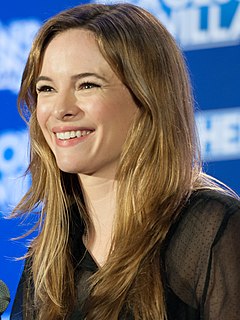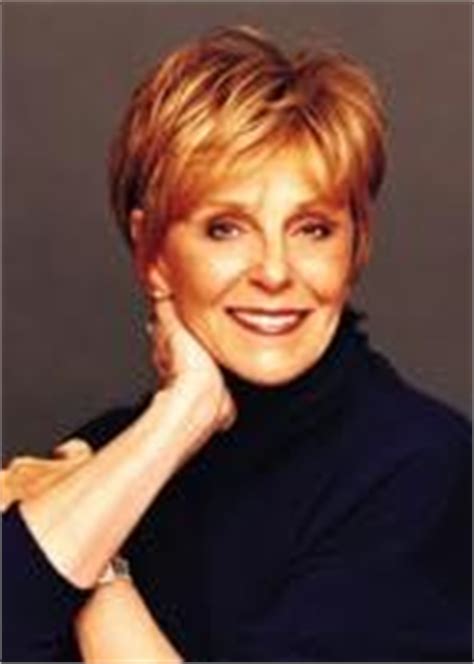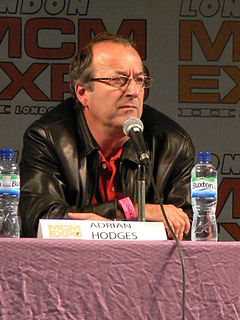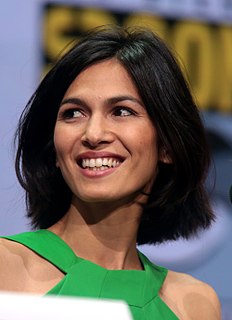A Quote by Danielle Panabaker
It was so enticing from the beginning to be this woman who was entrenched in The Flash's world. She's not there to just tell him what a great job he's doing, she's also there to push him further and help him to be the best that he can be. She's often the first person to be a little bit skeptical of him, which is kind of nice. She really challenges him.
Related Quotes
(...)Did she really tell Roddy Carstairs she could outshoot him with his own pistol?" "No," Jason said dryly. "She told him that if he made one more improper advance to her, she would shoot him- and if she missed, she would turn Wolf loose on him. And if Wolf didn't finish the job, she had every faith I would." Jason chuckled and shook his head. "It's the first time I've been nominated for the role of hero. I was a little crushed, however, to be second choice after the dog.
She was in a terrible marriage and she couldn't talk to anyone. He used to hit her, and in the beginning she told him that if it ever happened again, she would leave him. He swore that it wouldn't and she believed him. But it only got worse after that, like when his dinner was cold, or when she mentioned that she'd visited with one of the neighbors who was walking by with his dog. She just chatted with him, but that night, her husband threw her into a mirror.
She rested her head against his and felt, for the first time, what she would often feel with him: a self-affection. He made her like herself. With him, she was at ease; her skin felt as though it was her right size.. It seemed so natural, to talk to him about odd things. She had never done that before. The trust, so sudden and yet so complete, and the intimacy, frightened her.. But now she could think only of all the things she yet wanted to tell him, wanted to do with him.
The woman is the man's glory, and she naturally delights in the praises which are assurances that she is fulfilling her function; and she gives herself to him who succeeds in convincing her that she, of all others, is best able to discharge it for him. A woman without this kind of "vanity" is a monster.
To tell the truth, this was one of the few cases in which she had not told him just what she was thinking. Usually, she let him know whatever thoughts happened to come to her, and indeed he never took it amiss if she let slip a word that might pain him, because when all was said and done that was the price one paid for sincerity.
He was making her feel small and absurdly petulant and, worse yet, she suspected he was right. She always suspected he was right. For a brief irrational moment, she wished she could walk away from him. Then she wished, more rationally, that she could love him without needing him. Need gave him power without his trying; need was the choicelessness she often felt around him.
I think there's an element in Milady where she sees her own innocence in D'Artagnan. In the very beginning, she's using him in a pretty cynical way. When she gets to know him, she sees qualities in him that she recognizes and it's almost like trying to remake the past, but of course, it doesn't work.
She looked at him then, but his image blurred behind tears that swelled into her eyes. She must leave. She must leave this room, because she wanted to hit him, as she had sworn she never would do. She wanted to cause him pain for taking a place in her heart that she wouldn't have given him if she'd known the truth. "You lied to me," she said. She turned and ran from the room.
There's really quite a beautiful marriage between Milady's ingenuity and D'Artagnan's immaturity. When they first meet, she's trying to frame him. She's using him for a certain reason. They haven't just met by coincidence. She's singled him out for a reason. She knows that she can almost make D'Artagnan do what she wants to, and that's when D'Artagnan's immaturity comes out.
The mother must teach her son how to respect and follow the rules. She must teach him how to compete successfully with the other boys. And she must teach him how to find a woman to take care of him and finish the job she began of training him how to live in a family. But no matter how good a job a woman does in teaching a boy how to be a man, he knows that she is not the real thing, and so he tends to exaggerate the differences between men and women that she embodies.



































